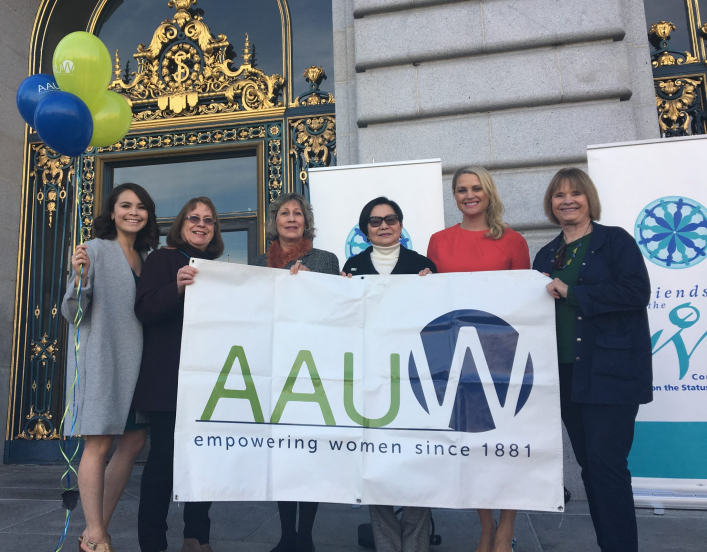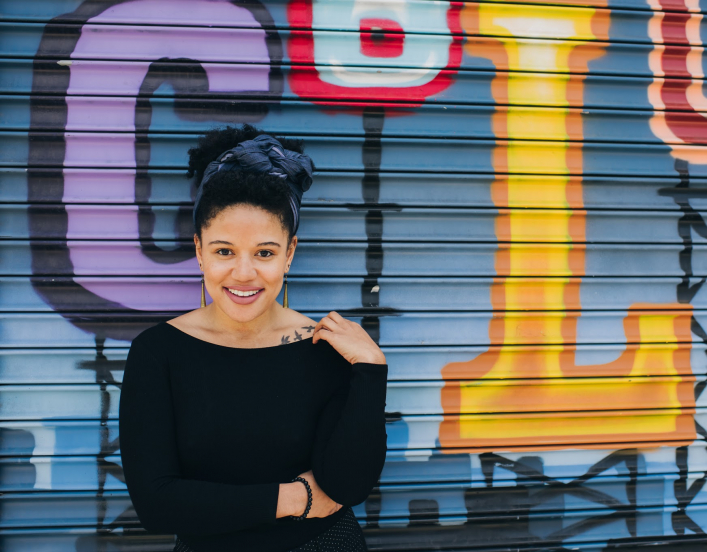The Roots of a Trailblazing Mission
Our History
AAUW’s story begins in 1881, when a small group of female college graduates banded together to open the doors for women’s career advancement and to encourage more women to pursue higher education.
The history of the American Association of University Women mirrors the progress of women in the United States. As the number of women graduating from college grew, so did our membership.
We’ve published hundreds of research reports, from an 1885 paper disproving a prevailing myth that college impairs a woman’s fertility to, most recently, a study documenting the economic impact of workplace sexual harassment. We have supported the academic achievements of many thousands of scholars, from scientist Marie Curie, the first woman to win a Nobel Prize, to astronaut Judith Resnik, the second woman in travel in space.
Our advocacy efforts have propelled countless new laws, including the Equal Pay Act, first proposed in 1945 and finally passed in 1963; the Title IX amendment in 1972; the Family and Medical Leave Act in 1993; the Lilly Ledbetter Fair Pay Act in 2009; and the Paycheck Fairness Act, which was passed by the U.S. Representatives in 2019 but is awaiting action in the Senate.
We’ve come a long way, but we still have a long way to go. In many ways, the fight for gender equity is just getting started. Join us!
AAUW Heroes
More Faces of AAUW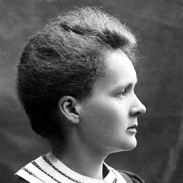
Dr. Marie Curie
The first woman to win a Nobel Prize.
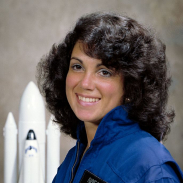
Judith Resnik
The second American woman in space.
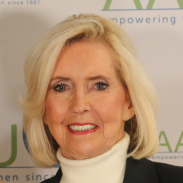
Lilly Ledbetter
Equal pay advocate
1880 to 1910
AAUW was founded by Marion Talbot, who became the Dean of the College of Women at the University of Chicago and a leading figure in higher education, and Ellen Swallow Richards, the first woman to earn degree in chemistry and a leader in the field of home economics.
At that time, women faced significant barriers in accessing higher education and in pursuing jobs outside a limited number of fields. AAUW’s founding marked one of the first organized efforts to advance opportunities for women to pursue higher education and careers — and for equal treatment with men.
In our early years, we offered women a way to unite as a source of strength, support and power. We launched one of the most enduring fellowship programs for women in world. And we commissioned groundbreaking research that documented women’s abilities and equal value.
Prominent members included such influential woman as Hull House co-founder Jane Addams, suffragist pioneers Carrie Chapman Catt and May Wright Sewall, Edith Abbott who was the first woman Dean of a graduate school (University of Chicago), pioneering geneticist Nettie Stevens, groundbreaking research scientist Gertrude Rand who discovered the test for color blindness, the first woman elected to Congress Rep. Jeannette Raskin (R-MT) and the first Jewish woman elected to Congress Rep. Florence Prag Kahn.
The woman in industry who finds herself employed in the occupations which are open to men and who frequently performs identical work for a salary or for wages much below those paid her co-workers of the opposite sex is naturally apt to inquire what reason, economic or other, justifies this inequality. 1896 Report, Compensation in Certain Occupations of Women Who Have Received College Or Other Special Training
Timeline
My hope is that I may live through my influence. I have no desire for any other kind of immortality.
AAUW co-founder Marion Talbot
1920s to 1950s
AAUW’s Formative Decades
Throughout the economic boom of the 1920s, the Great Depression and the New Deal o the 1930s and the WW II and post-war era of the ‘40s and ‘50s, AAUW continued to thrive. Our influential network helped to increase the number of women attending college and universities and supported women in their career development.
By the time we celebrated our 50th anniversary in 1931, AAUW had had 521 branches and 36,800 members. By 1949, we had grown to 1,097 branches and more than 108,000 members.
We greatly expanded our fellowship program, providing direct support for women to pursue their educations. We documented discrimination on campuses and fought for increased inclusion and improved recognition for women in higher education and the workplace. And we supported many pioneering women in STEM, including Nobel Prize winner Marie Curie.
In addition, AAUW worked with First Lady Eleanor Roosevelt to help to launch the World Center for Women’s Archives, which literally wrote women into the history books.
During WWII, we supported the establishment of women’s units of the armed services and advocated for equal pay and rank for women. Members at the national and local level participated in civilian and military wartime activities, including raising money for a War Relief Fund to assist European scholars and university women displaced by the military occupation.
AAUW actively advocated for the creation of the United Nations: President Franklin D. Roosevelt appointed AAUW board member Virginia Gildersleeve, founder of the International Federation of University Women (now Graduate Women International) and one-time Barnard College president, as the sole female U.S. delegate to the San Francisco Conference (United Nations Conference on International Organization) to discuss the creation of the United Nations in 1945. AAUW was granted permanent U.N. observer status in 1946.
Timeline
1960s to 1980s
The Civil Rights and Feminist Era
The 1960s ushered in an era of significant social progress in the U.S., and AAUW played a pivotal role. Throughout the decade, we became grew increasingly engaged in the Civil Rights Movement: AAUW President Blanche Dow was on the Steering Committee of the National Women’s Committee for Civil Rights.
We launched efforts to mark the 15th anniversary of the U.N. Universal Declaration of Human Rights and the Action for a Unified Society program, with branch activities around the country designed to promote racial understanding and civil rights. We created the Coretta Scott King Fund to provide scholarships to enable Black women to become leaders in academia, business, the professions, the arts and public service.
AAUW remained at the forefront of the Feminist Movement, continuing its fight for laws and policies to increase gender equity. Our members served on the 1961 Presidential Commission on the Status of Women, and around the country and in Washington D.C., our local branches lobbied for passage of the Equal Pay Act of 1963. We advocated for reforms on issues such as equal pay, reproductive rights, maternity leave, sexual harassment, and sexual violence. Our commitment to environmental issues was marked by the publication of a 1968 study, This Beleaguered Earth—Can Man Survive? and corresponding local initiatives focused on improving the environment.
We continued to lead the fight for equality in education. AAUW published the groundbreaking Campus 1970: Where Do Women Stand? report, which documented widespread sexual discrimination against women at all levels of education. AAUW was instrumental in the creation and passage of Title IX, which was introduced by AAUW Member Rep. Edith Green (D-OR) and was co-sponsored by AAUW Member Rep. Patsy Mink (D-HI). We have continued to track the progress —as well as the setbacks – of Title IX, continuing to push for advances in gender equity education ever since.
Our members forged new pathways in leadership. AAUW member Rep. Shirley Chisholm (D-NY) was the first Black woman elected to the U.S. Congress, the first Black American to run for president and the first woman to run for presidential nomination from a major political party. AAUW member Patricia Roberts Harris was the first Black woman appointed to the U.S. Cabinet, serving as U.S. Secretary of the Department of Housing and Urban Development and of the Department of Health, Education and Welfare. She was also the first Black woman to become a U.S. Ambassador. AAUW member Juanita Kreps was appointed as the first woman U.S. Secretary of Commerce.
Timeline
1990s to the Present
The New Millennium & Into the Future
AAUW has continued to trailblaze for women, breaking down barriers and making the world more equitable for future generations. We are a prominent voice in the national conversation about the gender pay gap, anchored in the annual publication of The Simple Truth about the Gender Pay Gap.
We advocate for laws and policies at the federal and state level. AAUW galvanized and led the fight for the passage of the Lilly Ledbetter Fair Pay Act of 2009 and for upgraded pay laws in dozens of states. We were active in the White House United State of Women Summit and the White House Equal Pay Pledge in 2016. We also have trained thousands of women through our Work Smart and Start Smart salary negotiation training programs. And since 2002, we have hosted the National Conference for College Women Student Leaders (NCCWSL), which provides support and training for thousands of women as the embark on their careers.
Our Legal Advocacy Fund has supported more than 120 plaintiffs in lawsuits related to sex discrimination in higher education and the workplace, including supporting the Dukes v. Walmart case, the largest-ever class-action sexual discrimination lawsuit. Although the U.S. Supreme Court ruled against the suit, deeming the class too big to move forward, the case brought renewed and galvanized national attention and advocacy to the issues.
We continue to focus on women’s education: Our research includes the landmark How Schools Shortchange Girls report in 1992, which sparked national debate and led to greater investments in closing the gaps. Our 2006 report, Drawing the Line: Sexual Harassment on Campus, and 2011 report, Crossing the Line: Sexual Harassment on Campus, helped to set standards for new policies and practices. AAUW was active in the White House Task Force to Protect Students from Sexual Assault and to ensure the enduring promise of Title IX.
AAUW’s Why So Few? Women in Science, Technology, Engineering, and Mathematics and Solving the Equation: The Variables for Women’s Success in Engineering and Computing became sentinel publications in identifying the gaps keeping women from the STEM fields and igniting efforts for change. Our Deeper in Debt: Women and Student Loans report documented how much more debt women occur than men.
Today, more than a third of American women get a college education, a larger percentage than men. The number of women in the workforce is above 50%.
TIMELINE


